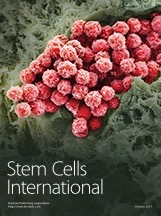N. Raschzok Guest Editor - Call for Papers

Investigators are invited to participate in a special issue on „Human Pluripotent Stem Cells in Hepatic Development, Liver Reconstruction and Disease Modeling“ through original research articles at the forefront of this fast pace moving field as well as reviews describing current and forthcoming challenges.
Lead Guest Editor is Karim Si-Tayeb (Institute of the Thorax, Nantes). Guest Editors are Gareth Sullivan (Institute of Basic Medical Sciences, University of Oslo), Robert Schwartz (Weill Cornell Medical College, Cornell University, New York), Nathanael Raschzok (Charité – Universitaetsmedizin Berlin), and Tamir Rashid (King's College London).
Manuscript Due: Friday, 23 January 2015
First Round of Reviews: Friday, 17 April 2015
Publication Date: Friday, 12 June 2015

